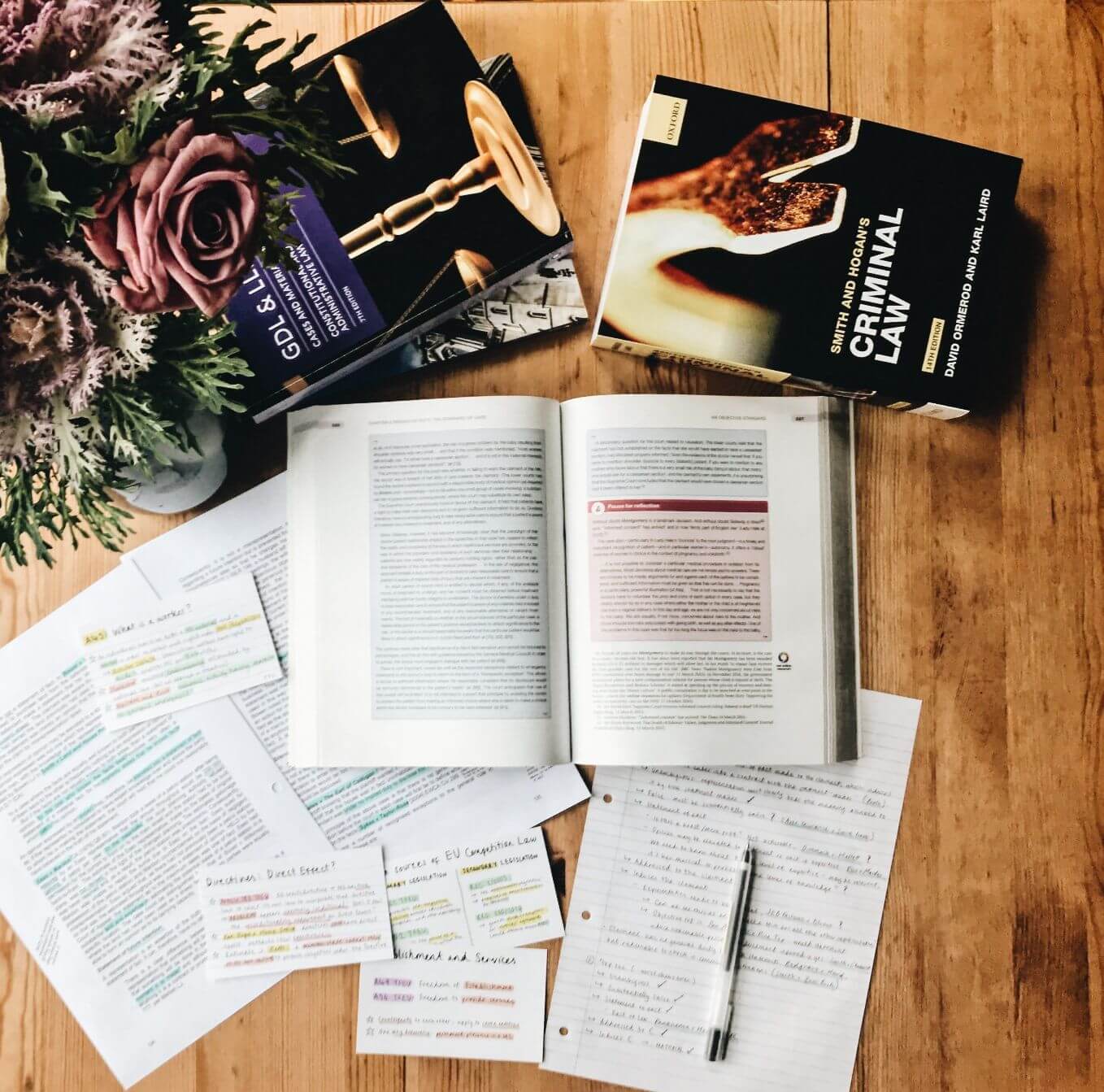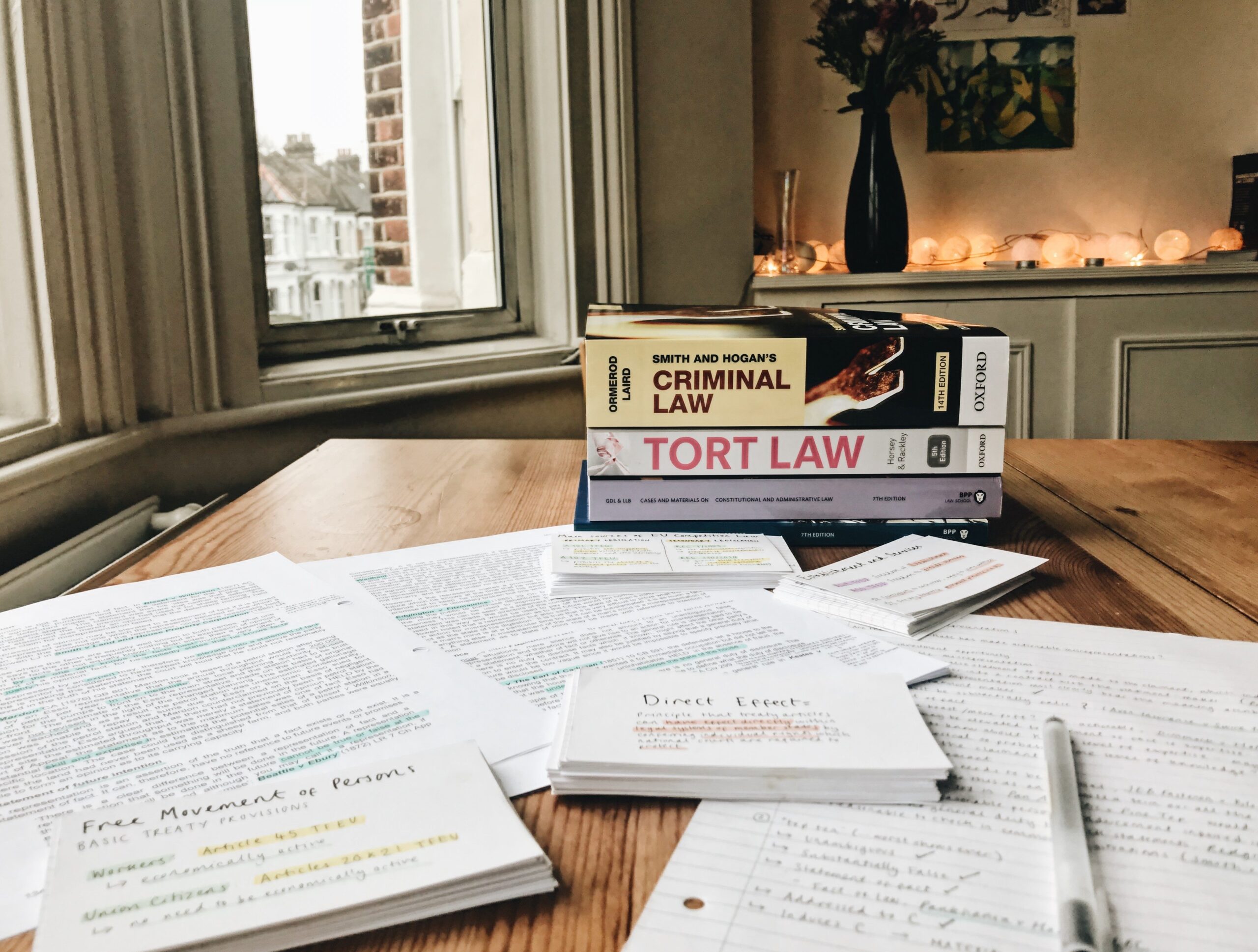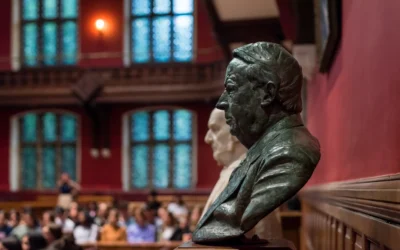What made you consider a career in law?
I’d always imagined myself doing something ‘creative’, like publishing or marketing, but doing summer internships in these areas during my third year of university made me realise that they weren’t quite for me. I wanted to do something a little more serious, combining serious intellectual thought with being part of a team.
There were lots of factors that attracted me to law, but I think the most exciting one for me was its relevance to the ‘real’ world. Almost everything that happens in our society is regulated by law of some sort: from huge international financial transactions, which are very much affected by the fast-changing political climate, to interactions between individual people – like divorce law, for example. As someone who hadn’t studied law yet, I was drawn to the idea of a career with so many possible directions.
That said, the journey from non-law undergraduate to fully-fledged lawyer follows a pretty clear path, unlike many other careers. The process of how to become a lawyer is broken into clear steps, and I feel very comforted to know exactly what I have to do for the next few years.
GDL vs LLB: How do they compare?
It really couldn’t be more different! LLB (latin for Legum Baccalaureus) is Bachelor of Laws degree which is the first step to becoming a lawyer and is less advanced than a GDL which is a qualification you need to become a solicitor or barrister. The GDL covers a vast amount of content, and although I’ll have more to learn for each exam than I did at undergraduate level, none of the content is anywhere near as conceptually difficult as things I studied for my degree were.
The other big difference is that we have to submit work far less frequently than on my undergraduate course. There are questions to prepare for each class, but these only form the basis for discussion. The fact that our work rarely gets marked by a tutor means we have to be more responsible for our own progress. I’m learning to identify my own weaknesses in a way I didn’t ever have to at university, which I imagine is much more reflective of an office environment.
How do you prepare for the GDL?
I try to treat the GDL like a 9-5 job, so I spend all day in school, Monday-Friday. Each week I have two days of classes and two days of lectures, and the fifth day is for independent study. Our classes are in groups of fifteen, and cover the key subject modules: EU Law, Equity and Trusts Law, Land Law, Contract Law, Constitutional and Administrative Law, Tort Law, and Criminal Law. We also have a lecture on each of these subjects per week, and there are additional consolidation sessions covering the previous week’s work.
For each class, we prepare answers to a problem question, based on the week’s lecture. We spend the class dissecting the question, discussing how best to answer it, and exploring any issues that arise from it. Our questions always represent a realistic scenario where we have to advise a client, so it’s a good hint of what future practice will be like! Having all of our classes in the same small group means it’s easy to make friends – friends who will double up as useful contacts when we’re all lawyers! In the time between classes, I either work through problem questions with my friends in the study room, or we’ll escape to the common room for a coffee and a chat.
How hard is the GDL?
The GDL is quite a funny course: sometimes it feels very obvious that somebody has tried to cram a three-year law degree into just one year. We often don’t have time to read cases in full, and have to rely on summaries and commentaries instead. It’s very fast-paced, and misunderstanding the work for one class can leave you struggling for weeks afterwards, particularly at the very start.
But it’s not too fast-paced: so far, I’ve found it very refreshing to be studying something completely new, surrounded by other people doing the same thing. The tutors have all worked as lawyers in the past, and their anecdotes about private practice really help to contextualise what we’re learning. There’s also something very rewarding about a course with such a clear career focus at the end of it!

What are your future plans in law? Are you set on becoming a Solicitor or Barrister?
I actually already have a training contract secured for after I’ve completed the LPC. This means that, as well as having a job waiting for me, my future firm pays my course fees and provides me with a generous monthly maintenance grant. Although it’s completely possible and normal to do the GDL without one, applying for training contracts in your final undergraduate year is common, and a way to make the GDL year much easier, both financially and in terms of pressure!
Barrister vs solicitor: How do you decide which one is best for you?
The paths for future solicitors and barristers are quite different. Solicitors complete a two-year training contract after the GDL and the LPC (Legal Practice Course, also one year long), and qualify as Associates at the end of the training contract. Barristers have to secure Pupillage with a set of Chambers, which they complete after the GDL and BPTC (Bar Professional Training Course). It’s normal for a firm to fund their future trainee solicitors throughout the GDL and LPC, but the funding available for future barristers is, I’ve heard, less consistent, and harder to come by.
I chose the solicitor route because I didn’t really see myself as a barrister. I don’t think advocacy is my strongest point, and I’ve always been put off by the strict running order of court proceedings. Barristers are also self-employed, and I wanted the security and community of working for a firm.
My future firm specialises in corporate and commercial work, especially in the Energy sector. I’m particularly excited about the compulsory overseas secondment, which means I’ll spend four months of my training contract in one of the firm’s international offices. Fingers crossed for Singapore! After my training contract, I plan to stay with the firm for at least a few years as an Associate, and I’d like to think I’ll become a Partner one day, whether with this firm or another. I’m excited to find out!
What is the best way to prepare for the GDL and a career in law?
Whether you decide to apply for positions during your final year as an undergraduate or during the GDL, work experience and law internships are pretty much the most important things you can do to prepare for the GDL and a career in law. Try to see as much of the legal world as possible: write to local firms with different specialisms and ask to job shadow someone for a few days; go to your local court and sit in on a case; find out about volunteering opportunities at Citizens’ Advice Centres… there are lots of things you can do relatively easily to find out whether it’s a career you’ll like.
Other than that, read books on law! The Financial Times and The Economist are great for keeping up to date with developments in the commercial world, and more broadly, regularly watching the news and reading newspapers is very important too. Political developments are at the core of Public Law, for example.
From the early morning coffee runs to the late night study sessions, a day in the life of a law student is full of surprises and opportunities – why not experience it for yourself by signing up for our Oxford Law summer school today?

By Ella Harold
Ella is currently studying for her Graduate Diploma in Law (GDL) at the BPP Law School in London. She is a Future Trainee Solicitor and will take up a training contract after her LPC. Before studying law, Ella was an undergraduate studying French and German.





